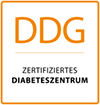Myxedema is a term that has two meanings. The condition is characterized by the swelling of the skin and soft tissues in hypothyroidism. In addition, myxedema, or myxedema coma, is a severe condition that occurs due to hypothyroidism and is associated with impaired homeostasis caused by low thyroid hormone levels in the blood. This is a deadly disease with a mortality rate of up to 20% even with intensive care. This leads to bradycardia, depression of consciousness and respiratory depression, intestinal obstruction, ascites, and water-electrolyte imbalance. Patients undergoing their myxedema treatment abroad are provided with adequate care that saves their lives and protects against irreversible damage to organs and tissues.
Content
- Principles of conservative treatment
- Infusion therapy
- Hormone therapy
Myxedema treatment in Germany involves the use of hormonal drugs and infusion therapy. If clinically indicated, vasopressors, antibiotics, glucocorticoids, and other drugs can be used as well.
You can undergo your treatment in one of the following hospitals: University Hospital of Ludwig Maximilian University of Munich, Hospital Neuperlach Munich, or University Hospital Carl Gustav Carus Dresden.
We will arrange your trip if you book your treatment abroad through the Booking Health service. The Booking Health doctors will recommend the most effective treatment method for you, and our managers will help you to select the most suitable clinic, make your treatment appointment, apply for a visa, prepare your documents, and come to the clinic. The company's employees will also take care of the absence of overpayments for your treatment, translation of medical records, insurance, and interpreting services.
Principles of conservative treatment
Patients are treated in the intensive care unit. Most patients are admitted to the hospital with a low body temperature, namely 35.5°C and below. The lower the temperature, the worse the prognosis. Old age, heart rhythm disturbances, a severe depression of consciousness, and sepsis (spread of infection in the body) are also considered bad prognostic factors.
Most patients require mechanical ventilation. This is carried out under constant monitoring of the gas composition of the blood.
Many patients are prescribed antibiotics. These are required to suppress a confirmed infection. Even if the pathogen is not detected, antibiotics may be prescribed to eliminate the suspected infection.
Doctors strive to increase the patient's body temperature by any available means. These are not only medicines, but also warming blankets and regulation of the air temperature in the room. At the same time, when warming a patient, doctors are careful, since too much vasodilation will lead to low blood pressure and may cause a shock.
The cause of myxedema is critically low thyroid hormone levels in the blood. Therefore, patients simultaneously receive hormone replacement therapy. As a hormonal profile improves, the body temperature rises.
Infusion therapy
The problems in patients with myxedema are hypotension (low blood pressure), hyponatremia (low blood sodium), and hypoglycemia (low blood glucose).
To avoid blood pressure lowering, patients receive infusion therapy. They are given intravenous solutions to help maintain fluid and electrolyte balance in the body. If the infusion of solutions to maintain pressure is not enough, then vasopressors are administered. These are drugs that constrict blood vessels (for example, dopamine or norepinephrine).
The problem of hypoglycemia is solved by the injection of a 10% glucose solution.
The problem of sodium deficiency can usually be solved with the administration of an isotonic sodium chloride solution (saline) with a concentration of 0.9%. However, if hyponatremia is severe (sodium levels are less than 120 mmol/l), hypertonic saline with a concentration of sodium chloride of 3% is used. Additionally, the administration of diuretics is required to ensure normal urination. Increasing sodium levels by 4-6 mmol/l eliminates or significantly reduces the neurological symptoms of myxedema coma. However, the increase in sodium should not be abrupt. Doctors in foreign medical centers increase it by no more than 6-8 mmol/l per day.
Hormone therapy
Myxedema is a consequence of hormone deficiency. Therefore, the treatment of myxedema in Germany necessarily includes the administration of hormones. These are administered as early as possible, even before the confirmation of a diagnosis. Glucocorticoids can be additionally used to prevent an adrenal crisis, especially in the presence of low blood pressure.
While a patient is in a critical condition, thyroid hormones are injected intravenously. Although these drugs are usually taken orally, during myxedema coma, intestinal motility is impaired, so not all of the dose taken enters the bloodstream. Once a patient's condition is normalized, doctors switch to oral drugs.
It is important not only to compensate for hormone deficiency, but also to avoid an overdose. An overdose of hormones will lead to cardiac arrhythmia. Doctors in Germany perform laboratory diagnostics: they determine TSH, T4 and T3 levels to perfectly select and adjust the doses of drugs.
If you have myxedema and myxedema coma, you can go to Germany to undergo your treatment there. The Booking Health specialists will take care of the quickest possible arrangement of your trip so that you can receive emergency medical care. The Booking Health service will help you to select the best clinics in Germany. On the website, you can find prices at different hospitals. You can compare the costs to make your treatment appointment at the best price. After eliminating a life-threatening condition, you can undergo your rehabilitation in Germany. Endocrinologists will select thyroid hormone replacement therapy for you, which will help you to fully normalize your metabolism and avoid complications in the future.
Authors:
The article was edited by medical experts, board-certified doctors Dr. Nadezhda Ivanisova and Dr. Sergey Pashchenko. For the treatment of the conditions referred to in the article, you must consult a doctor; the information in the article is not intended for self-medication!
Sources:
Centers for Disease Control and Prevention
Verywell Health
The Lancet
















